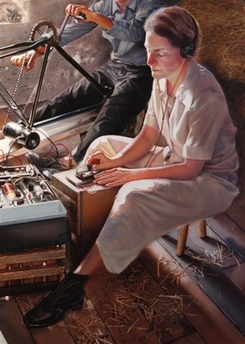Ambassadors to honor female WWII spy
(AP)Updated: 2006-12-11 12:12
BALTIMORE - In 1942, the Gestapo circulated posters offering a reward for the capture of "the woman with a limp. She is the most dangerous of all Allied spies and we must find and destroy her."
The injury derailed Hall's dream of becoming a Foreign Service officer because the State Department wouldn't hire amputees, but it didn't prevent her from becoming one of the most celebrated spies of World War II.
On Tuesday, the French and British ambassadors plan to honor Hall, who died in 1982 at age 78, at a ceremony at the home of French Ambassador Jean-David Levitte in Washington.
British Ambassador Sir David Manning plans to present a certificate signed by King George VI to Hall's niece, Lorna Catling. Hall should have received the document in 1943, when she was made a member of the Order of the British Empire.
"I think it was ironic that the State Department turned her down because she was an amputee, and here she went on and did all this other stuff," said Catling, who lives in Baltimore. Catling said she didn't learn many of the details of her aunt's espionage career until after her death.
Hall, who was fluent in French, was living in Paris when the Nazis invaded in 1940, and she decamped for London, where she was recruited by the secret British paramilitary service, the Special Operations Executive, becoming its first female field operative.
Hall was sent to Lyon, becoming "the heartbeat" of the local French Resistance, said Judith L. Pearson, whose biography of Hall, "Wolves at the Door: The True Story of America's First Female Spy," was published last year.
"Any agent from London came through her flat. She coordinated them with Resistance members," Pearson said. "Most agents only stayed about three months in the field. She stayed 15 months."
After the Gestapo wanted posters made her situation untenable, she fled through the Pyrenees mountains into Spain. During the journey, she sent a radio message to London, reporting that "Cuthbert" ¡ª her nickname for her prosthetic leg ¡ª was giving her trouble.
Her commanders didn't understand the reference, and their reply suggested the
gravity of Hall's circumstances and her value to the Allied cause: "If Cuthbert
troublesome eliminate him."
| 1 | 2 |  |
|
||
|
||
|
|

